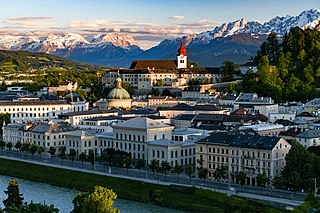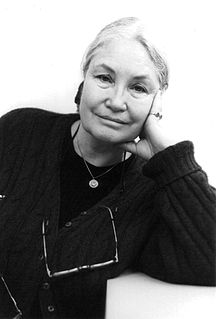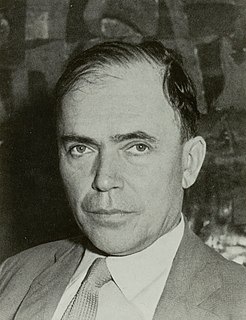
Salzburg is the capital city of the State of Salzburg and fourth-largest city in Austria. In 2020, it had a population of 156,872.

The Salzburg Festival is a prominent festival of music and drama established in 1920. It is held each summer in the Austrian town of Salzburg, the birthplace of Wolfgang Amadeus Mozart. One highlight is the annual performance of the play Jedermann (Everyman) by Hugo von Hofmannsthal.

The Theater an der Wien is a historic theatre in Vienna located on the Left Wienzeile in the Mariahilf district. Completed in 1801, the theatre has hosted the premieres of many celebrated works of theatre, opera, and symphonic music. Since 2006, it has served primarily as an opera house, hosting its own company.
Salzburg Marionette Theatre was established in 1913 and is one of the oldest continuing marionette theatres in the world. It is based in the city of Salzburg, Austria. Original productions featured live actors and musicians. Today soundtracks are recorded. The Salzburg Marionette Theatre performs a large repertoire of operas, ballets and productions for both children and adults, using marionettes.

Mirabell Palace is a historic building in the city of Salzburg, Austria. The palace with its gardens is a listed cultural heritage monument and part of the Historic Centre of the City of Salzburg UNESCO World Heritage Site.

Das Labyrinth oder Der Kampf mit den Elementen. Der Zauberflöte zweyter Theil is a "grand heroic-comic opera" in two acts composed in 1798 by Peter von Winter to a German libretto by Emanuel Schikaneder. The work is in the form of a Singspiel, a popular form that included both singing and spoken dialogue. The opera is a sequel of Mozart's The Magic Flute.

Landestheater Detmold is a theatre for operas, operettas, musicals, ballets, and stage plays in Detmold, North Rhine-Westphalia, Germany. It began as the Hochfürstliches Lippisches Hoftheater, founded in 1825 by the court of Lippe. The company has five venues in Detmold. With its guest appearances in more than a hundred locations in Germany and neighboring countries, the theatre company states that it is the largest touring company in Europe.

The Felsenreitschule is a theatre in Salzburg, Austria and a venue of the Salzburg Festival.

The House for Mozart is a theatre in Austria. It is one of the venues of the Salzburg Festival in the city of Salzburg. Since 1925, it was the first venue for the festival and carries the name House for Mozart since 2006. Mainly, operas and concerts are staged there.

The Staatstheater Augsburg is a theatre of Augsburg, Germany. Until 1999 it was called Städtische Bühnen Augsburg, from then until the end of August 2018 it was called Theater Augsburg. It offers on four stages musical theatre, plays and ballet, with its own choir and the orchestra Augsburg Philharmonic.

Ellen Schwiers was a German actress of stage, film, and television. She was featured in world premieres of plays by Dürrenmatt and Frisch at the Schauspielhaus Zürich, and appeared as Buhlschaft in Jedermann at the Salzburg Festival. In a career from 1949 to 2015, she also appeared in more than 200 films and television shows, including popular series such as Tatort. She also directed plays, founded a touring theatre company in 1982, and was Intendant of a festival from 1984.
Rudolf Sellner, born Gustav Rudolf Sellner? was a German actor, dramaturge, stage director, and intendant. He represented in the 1950s a radical Instrumentales Theater. After decades of acting and directing plays, he turned to staging operas, and was a long-time intendant of the Deutsche Oper Berlin from 1961, when the Berlin Wall was built. He staged notable world premieres, including Ernst Barlach's play Der Graf von Ratzeburg in 1951, Ionesco's Mörder ohne Bezahlung in 1958, Giselher Klebe's Alkmene in 1961 for the opening of the Deutsche Oper, and Aribert Reimann's opera Melusine in 1971.

Günther Schneider-Siemssen was a German-born Austrian scenic designer, working as the chief designer for all Austrian State Theatres and the Salzburg Festival, where he created 28 productions for Herbert von Karajan and 60 for Otto Schenk. He was a pioneer in using lighting and projections on stage. He designed sets for major international opera houses.
Rosl Schwaiger was an Austrian operatic coloratura soprano. She was a member of the Vienna State Opera and the Bayerische Staatsoper, known for singing Mozart roles such as Blonde, Susanna and Zerlina. She appeared at European opera houses and festivals and was especially popular at the Salzburg Festival, where she appeared for decades in opera and sacred concerts.

Oscar Fritz Schuh was a German-Austrian opera director, theatre director and opera manager. He is known for directing Mozart operas at the Vienna State Opera and the Salzburg Festival in productions that toured internationally. They focused on the psychology of the characters.
Hellmuth Matiasek, also Helmuth Matiasek, is an Austrian theatre and film director.

Jacopo Spirei is an Italian opera stage director. He is the winner of the audience prize in Salzburg for best production of the season 2012/2013 at the Salzburger Landestheater.
Carl Bissuti was an Austrian operatic bass
Maria Gerhart, also Marie Gerhart, married name Maria Gerhart-Gschwandtner was an Austrian operatic soprano.
Rosl Zapf was an Austrian operatic mezzo-soprano. She was a member of the Oper Frankfurt from 1950 to 1976, where she appeared in leading roles such as Herodias in Salome. She took part in world premieres such as Luise Talma's Die Alkestiade and Uno sguardo dal ponte by Renzo Rossellini. She performed at leading opera houses internationally, including La Monnaie in Brussels, Teatro Nacional de São Carlos in Lisbon and the Paris Opéra.
















